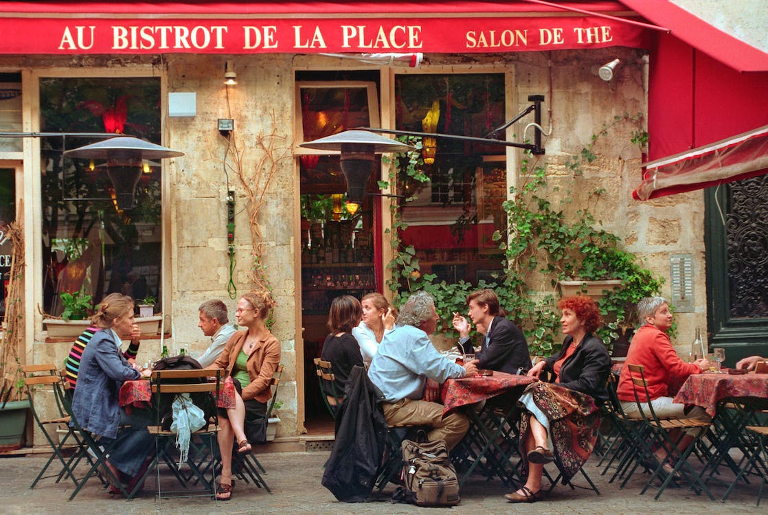In my “Silent Stalwart” published this past August I urged readers to reach out to other people to help save democracy in the election. Seeking support to fulfill one’s aims and needs, I wrote, is a natural impulse, and in the fall very many people were moved to act in various capacities for this purpose. Most of the efforts belonged to organized campaigns, but amid these I discovered a new under the radar movement of otherwise inactive people talking to each other. These were citizens freely acting on their own initiative to link up with others as citizens with the aim of making real the promise of democracy. Reacting to immediate threats to reproductive, voting rights and more, they broke their communities’ customary silence on politics. This was a breakthrough for the civic conversation that democracy requires, and it must not cease.
Talking to middle- and upper-middle-class voters of all parties in the suburbs south and west of Allentown, PA (CD 7) I closed positive conversations with the same request I have made for every past election: “Please tell everyone you know to vote for our candidates.” Remarkably for the first time, several people enthusiastically replied, “Oh yes, I’m telling everyone.” These were people who, when asked to volunteer, usually said that they didn’t have time. They further often declined to take yard signs, citing fear of retaliation by neighbors who boldly displayed opposing signs, and this was another new development that I noted. Still, in their spontaneous, modest and personal way my folks augmented the campaign machines’ activity to decide the outcomes of the area’s critical swing races.
The 2022 results have provided some relief, but assaults on democracy continue at every level. Next year there will be a multitude of school board and municipal races for which campaign machines are either much reduced or nonexistent. There will also be a good number of state legislative, executive and judicial elections. It’s now imperative that we continue to defend democracy on every front and not only in elections. As some people have just found their voices, thereby spawning an under the radar movement, that must continue and expand.
While the exercise of our First Amendment freedom of speech must be increased in personal conversations, it must additionally compensate for the decay of the Fourth Estate. Mainstream media serves the corporate interest, and through consolidation it has radically reduced local news reporting. Also, with so many 24/7 media options, people can easily remain blissfully ignorant of public affairs. This is in contrast to the 1960s, when every weekday evening there were no alternatives to Walter Cronkite, Huntley and Brinkley and their like, whose programs were followed by local news reports.
Phonebanking for a state senate candidate this year, I would open the conversation with, “Have you heard of them?” Very many voters had not. Campaigning for congressional candidates in the past I found plenty of people to whom they were unknown, and some fairly in the dark about congress itself. Unless I had dropped literature at doors and sent postcards in a recent local election hardly any voters would have even heard of the candidates. Corporate media amply covers the highest profile races, but these still must compete with the overwhelming flood of information to which we are subject. In lower-ranking contests it largely falls on individual candidates to makes themselves known to voters, heightening the pressure to amass campaign contributions. This is no way to run a democracy!
Sad to say, democracy itself is no priority for mainstream media, as I found out working on the federal voting rights legislation in 2021. Dismissed as DOA, it got woefully little coverage. No press came to four of the six events for it that I held in Allentown and Reading, although the latter’s paper did publish the press releases I sent.
The upshot of all this is that democracy increasingly depends on individuals communicating with each other. Fall-off of media coverage and money in politics in odd-numbered year elections typically results in significant fall-off in voter turn-out. Meanwhile, democracy issue campaigns are often little-known to the public. Misinformation and disinformation are growing problems as well, and they make sharing facts all the more urgent.
Vigorous civic conversation in the salons preceded the French Revolution, and this is an enduring lesson which I applied years ago in a local land preservation campaign. As it went on for a few years and involved multiple steps I periodically urged supporters to “talk it up.” Consequently, some time before our final victory many people believed that we had already succeeded. In the recent voting rights campaign we revived the civil rights movement songs “Woke Up this Morning with My Mind Stayed on Freedom” and “Ain’t Nobody Gonna Turn Me Around”, whose lyrics include “Talk, talk, talk, talk” and “I’m gonna keep on a-walkin’, keep on a talkin’.” In addition to being vital to the practice of democracy, broad civic dialogue is a proven campaign tactic.
This fact is now recognized by organizers who have made deep canvassing and friend-to-friend outreach standard procedures. Yet such practices are still mediated by campaign machines, upon which we should not rely for our engagement as citizens. All of the examples I have cited were spontaneously initiated by individuals.
Journalists have pointed to a variety of factors to account for the outcome of the 2022 election that refuted the polls. Progressives mounted a full-spectrum mobilization for which each participant can take some credit, and this includes the people who only talked to others that they knew.
The election launched a culture of conversation, and it must not be allowed to die out. In every even-numbered year, especially those that are multiples of four, many people get activated, then a good number of them go to sleep until the next cycle. This phenomenon was particularly pronounced in the 1994 and 2010 mid-term elections. Also, people must not place blind faith in any elected officials, but rather continually hold them accountable, always keeping in mind that the people are the sovereign. Every movement moreover must constantly maintain and build its momentum.
All citizens should be engaged, and much guidance has been developed on how to talk to one’s political opponents. I will only mention that in this progress is inevitably incremental. Meanwhile, I have highlighted the moderate suburban subjects who are available to do no more than talk, crucial as their conversations are. Their time is consumed with working, commuting, attending to their homes and families and recovering from the grind. What’s wrong with this picture? Our great advances in technology and wealth should allow people more time to engage in leisure, social and civic activities. Why don’t they? This is a question these people should add to their conversations as the peril grows for the economy, democracy and the planet.
“Your vote is your voice” read one of the pieces of literature I dropped at doors, but I insist that your voice holds remarkable power. In this moment we can further move and change the conversation. I’m rather a broken record on the standard one-dimensional language that Herbert Marcuse defined as consisting of absolute declarative statements – the form of advertising and propaganda. He contrasted it with dialectical language that discloses contradictions and leads to resolutions of them. An example of it is a conversation I had with another volunteer that began with noticing the local paper’s headline about the relentless construction of new warehouses in the area. My co-worker repeated the routine complaint concerning increased truck traffic, while I proceeded to connect some dots by remarking that our air quality is some of the worst in the country due to diesel emissions. As she commented that companies are blanketing the East with warehouses I replied, “The problem is consumerism.” At this point our talk ended as we had to get to work, but this is the kind of discourse we need to have with our associates and for which the door has been opened in this moment.
Moving ahead for democracy, people should obtain local election information from local media and county election office websites, while local candidate forums are excellent opportunities to find out competitors’ positions. Federal and state action on democracy issues can be conveniently tracked by signing up at Common Cause to get on their national and state email lists.
A lot of work must be done in 2023 to defend democracy, so keep on a-talkin’!
Teaser photo credit: By David Henry on Pexels.





